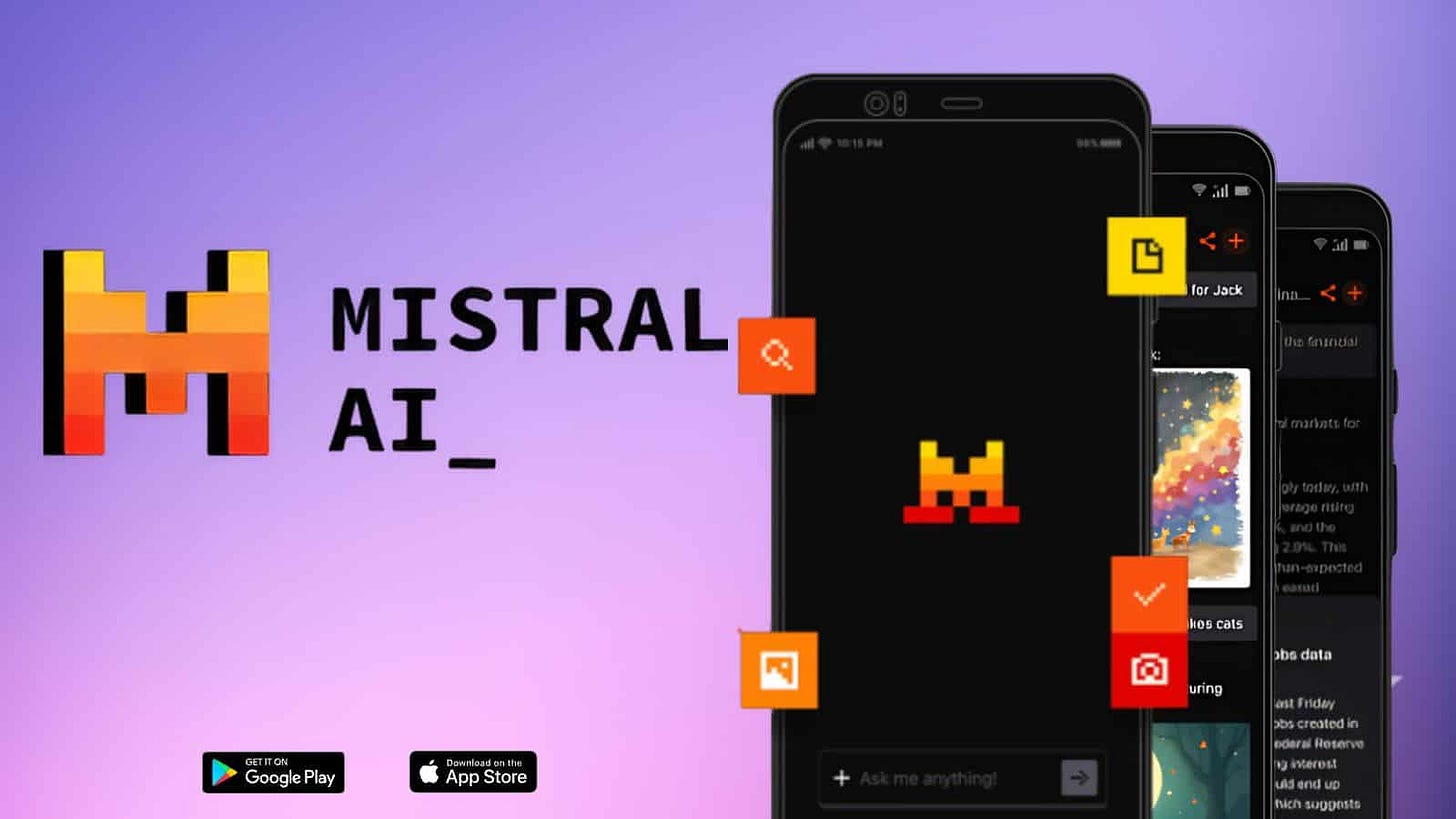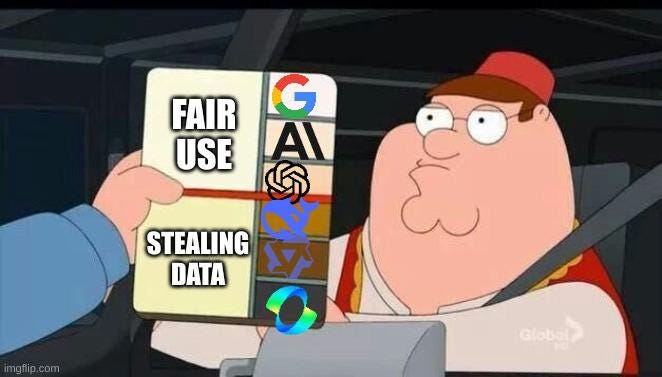Google Dives Into Reasoning | Weekly Edition
PLUS HOT AI Tools & Tutorials
Hello and welcome to our weekly roundup!
Though a little late, Google broke into the race of “reasoning” AI models this week. The company unveiled a huge update for Gemini models and made some promising announcements. Let's talk about it.
Apparently, this is Google's response to the o3-mini by OpenAI and DeepSeek-R1 that everyone has been discussing for the past two weeks.
This Creators’ AI Edition:
Featured Materials 🎟️
News of the week 🌍
Useful tools ⚒️
Weekly Guides 📕
AI Meme of the Week 🤡
AI Tweet of the Week 🐦
(Bonus) Materials 🎁
Your advertisement could be featured here!
Sponsor a spot in our newsletter to connect with subscribers interested in AI, technology, and startups. For inquiries, click the button below.
Featured Material 🎟️
Gemini 2.0 Is Now Available to Everyone
Google rolled out an update for the Gemini family this week.
On February 5, the company announced the release of its Gemini 2.0 suite, which includes Flash, Pro Experimental, and Flash-Lite models. These updates emphasize advanced reasoning, coding performance, and cost-efficiency. The models are available via the Gemini app, API, and platforms like Google AI Studio and Vertex AI.
Here's a quick rundown of what you need to know about each:
Gemini 2.0 Flash
This is a basic “workhorse” model designed for everyday tasks. It can quickly process large amounts of information (with a huge context window of up to 1M tokens) and supports inputs such as text, images, and audio.
Gemini 2.0 Pro Experimental
This flagship customized for complex tasks such as coding and multi-step problem solving. It offers improved performance, a much longer contextual window (up to 2M tokens), and the ability to integrate external tools (like code execution or using Google Search). It is designed primarily for developers who need maximum performance for complex tasks.
Gemini 2.0 Flash-Lite
The lightest and most optimized for lean and high-volume tasks. Flash-Lite is a simpler version of the Flash model. It is designed to be less expensive while still providing fast responses and handling multimodal inputs, although some advanced features may be limited compared to the full version of Flash.
You’ll find more technical details here.
Keep your mailbox updated with key knowledge & news from the AI industry
Gemini 2.0 Pro & Flash Thinking Experimental
But the most significant release is the Gemini 2.0 Pro Thinking Experimental.
It represents Google's most advanced AI yet, designed specifically for coding performance and handling complex prompts. It features context windows with a 2M tokens, the largest among Google's models. This enables AI to process and analyze vast amounts of information comprehensively.
The principle behind the new model is the same as that behind OpenAI's “reasoning” AI. Thinking Experimental break tasks into smaller, manageable steps, allowing them to “think” about clues before proposing a solution. This approach takes a little longer to generate a response but provides better results.
In addition, the company also revealed Flash Thinking Experimental. This model is a little simpler, but it can interact with almost all the company's platforms, including YouTube, Search, and Google Maps.
The Pro Experimental model is available only to Gemini Advanced subscribers, and everyone can try Flash Thinking Experimental on the Gemini website and apps.
News Of The Week 🌍
ByteDance Reveals AI To Create Avatars From Images
While the fate of TikTok in the US is being decided, the parent company is not sitting idly by. ByteDance has introduced OmniHuman-1, an AI framework capable of generating full-body videos from a single image combined with an audio input. The model uses a multimodal conditioning strategy to animate subjects with natural gestures and synchronized lip movements.
The first demonstration produced a video of Albert Einstein delivering a speech, illustrating the model's ability to create detailed deepfake videos.
There should be an opinion about the risks associated with deepfakes, but I'll leave that to someone else. OmniHuman-1 looks like the most impressive solution of its type. Whether ByteDance can make avatar generation mainstream, we'll find out soon.
OpenAI's Deep Research is Ready to Take Over Analyst Work
Late last week, OpenAI announced its next big product. It's called Deep Research and works as a digital data analyst. The tool analyzes hundreds of sources, including texts, websites, and images, and then generates complete reports with citations. To do this, Deep Research uses a modified o3-mini model. It is now available to all users with a ChatGPT Pro subscription for $200/mo.
The very next day after the release, Deep Research had a more affordable alternative: the Open Deep Research from the developers at Hugging Face. We covered it in more detail in this post:
GitHub Copilot Now Generates Code Using Images
GitHub's AI assistant for coders promises to become even more accessible and valuable. After the latest update, users can generate code directly from images—by attaching a screenshot, mockup, or diagram to a chat prompt. Copilot leverages a new “vision” feature to transform visual inputs into corresponding code snippets.
In addition, the update introduces voice command integration. So, now Copilot interacts with spoken instructions for hands-free navigation, code generation, and debugging tasks.
As of now, Copilot also supports the agency features introduced last November.
Sharing is caring! Refer someone who recently started a learning journey in AI. Make them more productive and earn rewards!
Mistral Releases Mobile Apps and Update for Le Chat
Paris-based Mistral AI has expanded its reach by releasing native mobile apps for its conversational assistant. Le Chat is now available on both iOS and Android.
Alongside the mobile rollout, the startup has updated its models. The latest version, Mistral Large 24.11, and the enhanced multimodal Pixtral Large now offer improved long-context understanding and faster response times, with capabilities to process up to 1,000 words per second.
It is not for nothing that Mistral is called Europe's last (and only) hope in the AI race. In my experience, it’s just as good at web search and content generation as the free versions of ChatGPT, Claude, and Gemini.
John Schulman Departs Anthropic to Join Mira Murati’s Startup
According to Fortune, John Schulman, renowned AI researcher and co-founder of OpenAI, has made a major career move, leaving Anthropic to join a new startup led by Mira Murati, another co-founder of OpenAI. Interestingly, only six months had passed since Schulman left Anthropic and partnered with Murati. What exactly Murati's AI startup is doing is currently unknown, but insiders say she is in talks to raise $100M.
The AI leaders continue to slowly move towards forming the “OpenAI Mafia.”
Useful Tools ⚒️
Pickle - Your AI body double for zoom calls
BetterPic – Get AI professional headshots, without a photographer or a studio shoot
Concierge - AI Assistant that talks to your SaaS apps in real-time
Kompas AI - A new alternative to ChatGPT’s Deep Research
Tool Finder - Fast search for suitable software using AI
Tool Finder is a platform that helps you search for tools using prompts. If you feel you are missing some app in your work but don’t know how to find it, this tool will help. Just describe your request in natural language in the search bar and get a suitable solution. There, you can also see the app's rating and feedback from other users.
Share this post with friends, especially those interested in AI stories!
Weekly Guides 📕
Building a better Perplexity with DeepSeek, OpenAI (o3), and a whole lot of Agenting
AI Agentic Design Patterns with AutoGen (Free Course)
ChatGPT Prompt Engineering for Developers (Free Course)
Poppy AI Course - The AI Tool To Rule Them ALL
Guide to Building Good AI Agents
AI Meme Of The Week 🤡
Well, that's the world we live in.
AI Tweet Of The Week
To see the whole thread, follow this link.
(Bonus) Materials 🏆
AI Voice Agents: 2025 Update by a16z
European AI startups raised $8B in 2024
Will Agents Power the Next Generation of Search?
How AI Will Answer Questions We Haven’t Thought to Ask | Aravind Srinivas
Big Tech lines up over $300bn in AI spending for 2025
Share this edition with your friends!











